SUMMARY
This is AI generated summarization, which may have errors. For context, always refer to the full article.

MANILA, Philippines – When the World Health Organization (WHO) classified the COVID-19 outbreak as a pandemic, Filipinos turned to social media and online sources to get all the information they needed about the virus.
In March 2020, Facebook also launched its COVID-19 Information Center, where users got access to the latest news and updates regarding the virus. In the Philippines, Facebook consolidated information from leading health organizations – including the WHO, United Nations Children’s Fund, and the Department of Health (DOH) – making its Information Center a one-stop-shop for users looking for reliable information on COVID-19.
On the surface, it seemed like a sensible response to the growing infodemic – a portmanteau of “information” and “epidemic” – surrounding COVID-19. It designated health authorities as official sources on everything that people needed to know about the disease to steer them away from hoaxes and conspiracy theories spreading on the platform.
The platform’s policy, however, affected content beyond COVID-19. By prioritizing relevant information from DOH, Facebook consequently highlighted as well other government voices that were spreading disinformation.
Rappler tracked the page growth of government agencies on Facebook alongside the growth of media organizations from January 1, 2020, to September 30, 2021. The DOH’s main Facebook page was among the government pages that enjoyed significant growth in followers during the pandemic.
It was only natural for Filipinos to turn to the official social media accounts of government offices to read up on the latest updates on the virus and pandemic-related policies. After all, public officials are the authoritative figures who lay down the guidelines and implement health programs that concern the citizens.
But this posed problems in the Philippines, where social media platforms are prone to state-sponsored disinformation.
Other government pages that grew significantly during the pandemic were the National Task Force to End Local Communist Armed Conflict (NTF-ELCAC), the Presidential Communications Operations Office (PCOO), and several police- and military-operated pages. Previous Rappler investigations showed that these pages had been involved in sharing false and misleading content, as well as in red-tagging activists and journalists.
The Facebook policy also contributed to the growing reliance of users on the pages of government offices. Data showed that the growth of other government pages also skyrocketed, soaring past the growth of news organizations. (READ: News organizations no longer dominate PH online space – Rappler study)
The graph above compares the cumulative growth of government pages and media pages during the pandemic. Interaction rate refers to how engaging the posts of the pages were, while page likes are an estimate of the pages’ audience that received regular updates. Sudden spikes in interaction rates alongside low page like growth may be attributed to occasional viral posts reaching a broader audience.
The biggest spikes in page likes for government agencies happened in March to April 2020, as Filipinos scrambled to get information after Duterte announced the first coronavirus-related lockdowns.
But amid the drastic increase in exposure for government pages, Facebook failed to address the need to scrutinize those in power. And the free press, which is tasked to hold officials accountable, was negatively affected by the policy and lagged behind in terms of reach and growth.
News orgs experiencing unnecessary friction
Facebook introduced friction in the sharing of all posts that mentioned COVID-19, including those from media organizations, when it launched the COVID-19 tags in 2020. Special labels would appear under such reports, linking readers to Facebook’s COVID-19 Information Center.

Facebook said the tags were meant to provide context to posts about COVID-19, as a way of countering the infodemic. But since Facebook labeled posts based on keywords, news articles that were not primarily about COVID-19 were unnecessarily labeled simply because they mentioned the disease.
In August 2021, Facebook labeled a Rappler article about the overpriced face shields purchased by the government. Facebook redirected users to its Information Center, which included the DOH. But the problem was that the DOH itself was at the center of the congressional investigations into the government’s misuse of funds on multi-billion pandemic contracts.
This labeling diminished the capabilities of news organizations to provide checks and balances to government messaging in the online space during a crisis.
Facebook also labeled other articles that were not health-related, including Rappler stories about tax investigations against foreign social media influencers, and about embattled Senator Leila de Lima being unable to personally visit her mother who contracted the virus.
As of February 2022, these stories no longer have the tags, but Facebook has since introduced similar labels intended for posts that explicitly mention the COVID-19 vaccine or vaccination against the virus. These labels also link readers to Facebook’s COVID-19 Information Center.

The vaccine label, however, also appeared under posts that did not mention anything about COVID-19 vaccination, whether in the caption or the attached image or video. These included a Rappler video report on Senator Richard Gordon and his reelection bid following the Pharmally hearings, as well as a business feature of a small-time coffee business posted by the Philippine Star.

Impact on the audience
The pandemic, aided by policies of the platforms, made Filipino users more reliant on government pages as sources of information.
In a separate study that looked at the information ecosystem of the Philippines, Rappler found that there are Filipino Facebook users who believe information they see on the platform as long as it comes from pages of government offices or officials. For them, the information they got from these sources was enough and did not warrant additional verification anymore.
“I don’t care if I have enough information because I trust it to the implementing bodies or the assigned people,” one of the respondents said in Cebuano during a Rappler focus group discussion in Cagayan de Oro in July 2021.
When the respondent was asked if they knew other reliable sources to verify the information they got from government channels, they said: “I think [information] should be coming from government agencies. For me, none. I don’t have any [other] sources about that.”
This goes beyond the context of COVID-19. The same study also found that such behavior influenced the respondents’ perception of the Duterte administration’s war on drugs. Several respondents who read reports from government sources about specific drug rehabilitation programs in their localities believed it was representative of the program all over the country.
“I don’t care if I have enough information because I trust it to the implementing bodies or the assigned people.”
study respondent from Cagayan de Oro
In reality, the situation is much more complex than that. The rehabilitation efforts were not implemented nationwide, and there were instances where those who surrendered were only asked by the police to dance Zumba. On top of this, the government is known to underreport drug war deaths, according to human rights groups. (READ: Unreal numbers: Around 2,000 drug war deaths missing in Duterte gov’t tally)
Such reliance on government channels alone also makes users prone to online deception, especially when fake pages masquerade as official accounts of government agencies or other public figures. Rappler found that an unofficial page posing as a municipal government page was spreading propaganda in favor of Ferdinand “Bongbong” Marcos Jr. and Sara Duterte, current frontrunners in 2022 election surveys.

Rappler already flagged the fake page in December 2021 for posting a false claim crediting the Marcos administration’s supposed blueprints for a new highway masterplan. Yet, to date, the page is still accessible.
Netizens also found that a fake website for presidential bet and veteran labor leader Leody de Guzman redirected to the website of Marcos, his 2022 rival. (READ: Kaleody.com web address redirects to Marcos Jr.’s website)

This kind of blind trust in government sources, amplified by the algorithms of social media platforms, makes audiences vulnerable to state-sponsored disinformation. It also becomes increasingly dangerous in countries like the Philippines where governments have a history of deflecting blame on the media during crises, and at times directly attacking members of the free press to suit their narrative.
How gov’t channels abuse platforms, evade accountability
While the DOH remains a reliable source for Filipinos looking for relevant information on COVID-19, other government agencies – whose growth also soared during the pandemic – have histories of abusing and misusing their platforms.
State-run Philippine News Agency reported in 2017 that 95 countries were convinced there were no extrajudicial killings in the Philippines, quoting then-Department of the Interior and Local Government assistant secretary Epimaco Densing III. Densing made no such claim. In a separate instance, PNA used a photo of soldiers in Vietnam for a story on the Marawi siege.
Netizens have also cried foul whenever government pages would spread blatant propaganda. When Filipinos protested against the jeepney modernization program in 2018, the official page of the Department of Transportation (DOTr) singled out activists in a post that compared how previous and current administrations dealt with such strikes.
The post was accompanied by a statement from DOTr Secretary Arthur Tugade which said: “We will not stop anyone from expressing their right. But, they also need to make sure that they do not step on other people’s rights. We have to consider the common good. BREAK THAT AND I WILL FIGHT YOU.” While the post about activists has since been deleted, Tugade’s statement has been reshared several times on the DOTr’s official page.
There were other instances when government pages spread misleading information, whether intentionally or unintentionally. In the past, official government agencies have committed minor – even laughable – mistakes, including referring to Norway as “Norwegia,” or using the logo of Dole Food Company for a story on the Department of Labor and Employment or DOLE. A state-run network even mistakenly used the #dutertepalpak hashtag in a tweet that stayed up for 40 minutes before it was deleted.
It is in these times when the independent press, which has the role of verifying and correcting dubious claims made by those in power, comes into play. But when they are not given the same priority by the platforms, this could lead to disinformation, or, worse, a decline in public trust.
In its fact-checking program, Facebook has exempted posts of elected politicians and candidates from being rated as false or misleading on the platform. This was how the company explained this exemption: “By limiting political speech we would leave people less informed about what their elected officials are saying and leave politicians less accountable for their words.”
Ironically, attacks carried out through government and public officials’ channels with large followings have proved to be more effective when they are allowed by the platforms to abuse their privilege to spread harmful messages. It becomes even harder to fight when social media platforms like Facebook implement policies that only benefit public officials.
What needs to be done?
When the voices of state actors dominate social media, tech companies need to put more policies in place to prevent government accounts from abusing their platforms. Companies also need to ensure that the media – intended to act as a watchdog – will be able to match the reach of the government.
Facebook’s policies that prioritized government channels during the pandemic and exempted politicians from being fact-checked disregarded the need for authorities to also be subject to scrutiny. It also failed to consider that some government pages have used their platform to spread propaganda, attack the media, and incite hate.
This also happened in 2018, when Facebook announced that it would prioritize “meaningful social interactions” by boosting posts from friends that garner many engagements, and by showing less public content from pages including news organizations. The algorithm change proved to be detrimental, as hate speech and disinformation spread more quickly on the platform compared to factual reports from credible news sources.
Facebook did have policies that sought the help of news organizations. The platform has been able to remove over 3,000 accounts, pages, and groups for repeatedly violating rules against spreading false information about COVID-19 and vaccines through its third-party fact-checking network. But the problem is that false information had already spread before they were taken down, while new hoaxes continued to spread on the platform.
The effects of these policies go beyond COVID-19. More than combating COVID-19 disinformation, there is also a need for Facebook and other social media platforms to amplify and support credible sources and public interest journalism, especially in the Philippines, where a high-stakes election will take place in May 2022. (READ: Facebook, Twitter, TikTok, YouTube still open for abuse in PH polls)
A related study by the Philippine Media Monitoring Lab that looked at the online behavior of users in relation to the 2022 elections pointed out that Facebook takedowns of posts were “too little and too late in minimizing social harm and averting political damage, and too little in effectively deterring abuse and manipulative behavior in the platform.”
Holding authorities accountable is a necessary part of a functioning democracy. When companies make their platforms susceptible to abuse – whether by government actors or anyone else – constituents will no longer be able to fully exercise this right. – with reports from Gemma B. Mendoza, Don Kevin Hapal, Dylan Salcedo/Rappler.com
Add a comment
How does this make you feel?
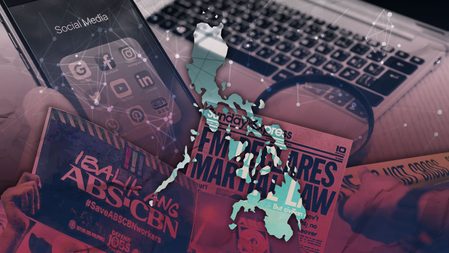
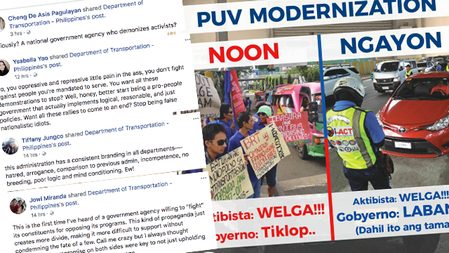
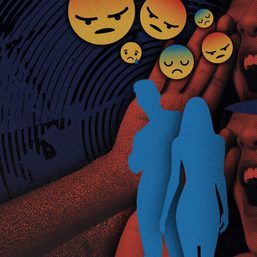

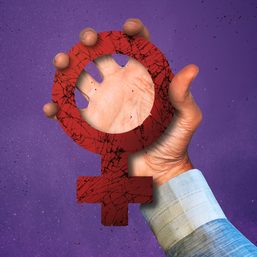
![[ANALYSIS] Cybermisogyny violates human rights](https://www.rappler.com/tachyon/2022/06/Cyber-misogyny-human-rights.jpeg?resize=257%2C257&crop_strategy=attention)
![[ANALYSIS] Building Narratives: stories of greatness and windmills in Marcos Jr.’s campaign video](https://www.rappler.com/tachyon/2022/05/Narratives-marcos-windmills-May-18-2022.jpg?resize=257%2C257&crop_strategy=attention)





![[DECODED] The Philippines and Brazil have a lot in common. Online toxicity is one.](https://www.rappler.com/tachyon/2024/07/misogyny-tech-carousel-revised-decoded-july-2024.jpg?resize=257%2C257&crop_strategy=attention)



![[Rappler’s Best] US does propaganda? Of course.](https://www.rappler.com/tachyon/2024/06/US-does-propaganda-Of-course-june-17-2024.jpg?resize=257%2C257&crop=236px%2C0px%2C720px%2C720px)
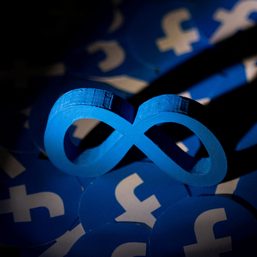


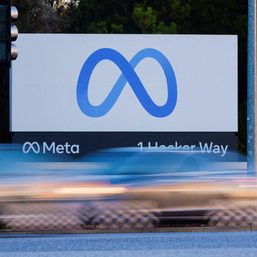
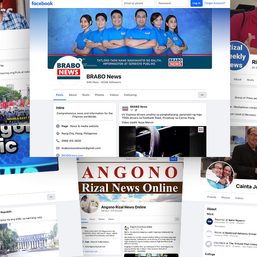
There are no comments yet. Add your comment to start the conversation.